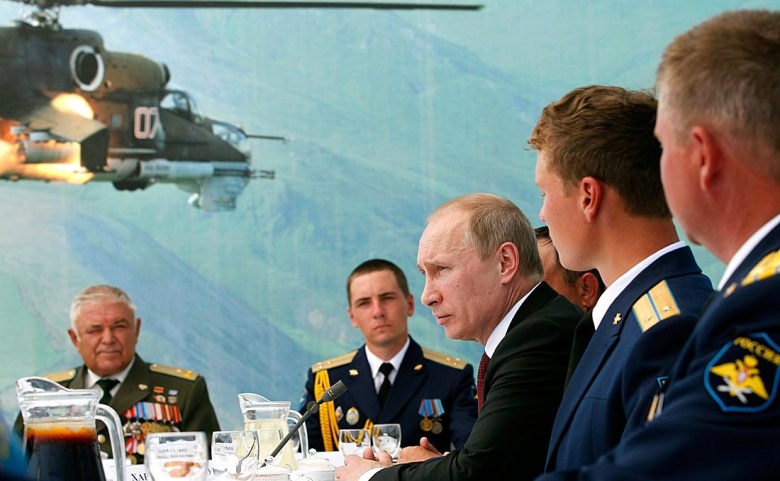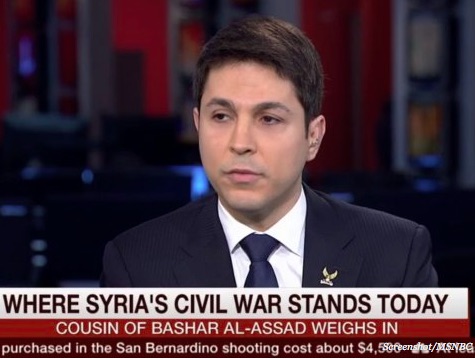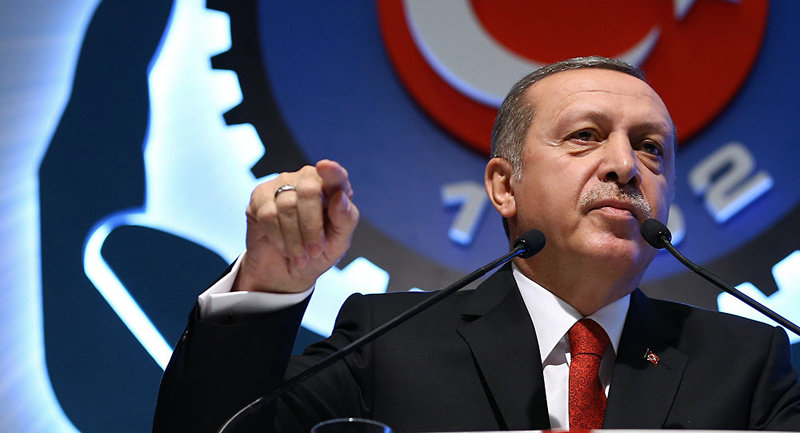You may have read recent reports that Islamist extremists killed 150 soldiers in the battle for an Aleppo suburb. 51 were executed after they had surrendered. The Western press has been filled with pictures of the cold-blooded murder of seven troops, tied-up and half naked.
This abhorrent behaviour will not surprise anyone who has followed events in and around Syria over the past two years. The prospect of freedom and democracy remains more distant than ever.
I have long written and spoken about the three tiers of conflict that have combined to such devastating effect in Syria: the disintegration of relations between the US and NATO against Russia and China; the sectarian tensions splitting the Middle East; and the horrific plight of the peaceful Syrian majority.
This summer has witnessed a deterioration in all three.
On a global level, much has been made of the Edward Snowden asylum situation. But this window-dresses more significant issues. Moscow has announced its “West-2013” Russian-Belarusian war games. Brussels responded with its own “Steadfast Jazz” operation. White House press secretary Jay Carney listed a series of disagreements including missile defence and arms control as reasons to postpone the proposed summit with Russia. Accusations of chemical warfare and threats of intervention have escalated the tension.
Regionally, each day’s news brings more evidence of sectarian persecution and violence, particularly in and around Syria.
In Hasakah, which borders Turkey and Iraq, a man kidnapped alongside a group of Christians was quoted in the Telegraph:
“One of the kidnappers leant so close to my face I could feel his breath. He hissed: ‘Why don’t you become a Muslim? Then you can be free.”
In a second incident, Reuters reported members of the Islamic State of Iraq and the Levant kidnapped and murdered a prominent Italian Jesuit priest in Raqqa. He had championed the uprising against the Regime, but his views did not tally with these extremist members of the opposition.
On the Syrian coast, hundreds of foreign Jihadists attacked and killed over 200 Alawites. Survivors fled to Latakia where Sheikh Badruddin Ghazal, a prominent Alawite religious was abducted and killed by members of Al-Qaeda.
Back on the Turkish border, militants from the Jabhat al-Nusra Front attacked the town of Tal Abyad, killing approximately 450 Kurdish women and children.
This is just a small taste of the atrocities being carried out by ‘opposition’ forces against different ethnic and religious minorities across the country. Reports of attacks on Christian and Kurdish villages are increasing, the latest being on the ancient Chrisian Town of Maaloula.
And this is a nightmare that is by no means restricted to Syria.
I have long been chronicling sectarian violence across the region. It has now spread through Egypt, where security officials announced the murder of a Christian merchant by suspected militants in the northern Sinai Peninsula. This was only a week after a Coptic Christian priest was gunned down by suspected militants in an outdoor market.
Iraq’s Prime Minister Nouri al-Maliki has blamed the acceleration of sectarian-led violence in his own country on weapons sent to Syria that have found their way East.
And as tensions grow elsewhere in the region, so the call to Jihad leads fundamentalists to Syria. Michael Morell, second-in-command of the CIA, says that more foreign fighters are now flowing into Syria each month than there were to Iraq at the height of its own war. He believes that Islamism in Syria is now the biggest threat to US National Security.
Western intelligence services estimate 6,000 foreign fighters in Syria with 10 percent from Europe, Australia, and North America. Their Arab counterparts estimate closer to 15 ,000. Jihadist sources speak of 30,000. All agree that the majority have come across from Turkey, Southeast Asia, North Africa, the Middle East and the /Caucasus.
The internet houses an ever-growing number of videos calling for Jihad. Originally these emanated from within the region, but more recently they have spread West. Abu Talha, a German citizen born Denis Mamadou Cuspert, preaches for war against the Syrian regime and its allies alongside videos of bombings and attacks in Iraq, Afghanistan, the Middle East and the UK. It ends with images of New York on 9/11. No wonder a German police official told the magazine ‘Focus’ about the growing “complicity of Germans in the extermination and ethnic cleansing in Syria”.
Back inside Syria, it was not so long ago that my concerns about the influence of Al Qaeda within the opposition forces were dismissed as scaremongering. There is no disputing them now. It is simply a question of how widely it has spread, and evidence can be found in specific military manoeuvres.
The capture of the Mannagh airbase in Aleppo, was stormed by suicide attackers in orthodox Al Qaeda (and Al Nusra) style.
Nearby, Aleppo’s central prison has come under sustained attack . It houses a thousand Al-Qaeda members. The offensive was started by a huge suicide bomb. This mirrors the Pakistani Taliban’s successful attack on a Prison in the Peshwari, and the Islamic State of Iraq and Al-Sham’s freeing of 140 Al-Qaeda operatives in two Iraqi prisons. This prompted Interpol to issue a global alert and US Embassies were closed in a number of countries.
Al Qaeda feeds in a political vacuum. It’s numbers, influence and success-rate in Syria are growing. But at least it is open about its intentions. The same cannot be said about the Muslim Brotherhood.
It is easy to misunderstand the Brotherhood. It was elected in Egypt in 2011, has been supported from Turkey by President Erdogan, and has, in Al-Jazeera, a formidable and credible mouthpiece. And so it is worth mentioning that in much of the Arab world, Al-Jazeera is nicknamed ‘Ikhwan’, meaning ‘brotherhood’.
And so I would like to focus briefly on the Muslim Brotherhood, to explain where its true intentions lie.
For a start, it is not in itself a party. It is a political movement with representative parties across the Arab world. It’s mission is best described in the words of its own Deputy Guide, Khairat al-Shater: “Restoring Islam and its all-encompassing conception; subjugating people to God; instituting the religion of God: the Islamization of life, empowering of God’s religion; establishing the Nahda of the Ummah on the basis of Islam”.
It’s flag paints an even starker picture. This includes three key elements: The Quran (referencing Sharia Law), two swords (referencing Jihad) and the words “and prepare” (referencing a surat in the Quran: “And prepare against them whatever you are able of power and of steeds of war by which you may terrify the enemy of Allah and your enemy and others besides them whom you do not know [but] whom Allah knows.”). Around this is written:
“Allah is our objective; the Prophet is our leader; Qur’an is our law; Jihad is our way; Dying in the name of Allah is our greatest hope.”
This flag has been raised across the Middle East in recent weeks and months. Particularly in Egypt. Al-Qaeda is an offshoot of the Egyptian Brotherhood. But whereas Al-Qaeda is open about its rationale, the Brotherhood believes in ‘Al-Taqiyah’, a phrase that means you must hide your true intentions from your enemies until you are powerful enough to defeat them. In Egypt, those intentions were revealed too soon and the Morsi Government fell. The current violence there is a direct result of the Brotherhood’s short spell in power. As Foreign Affairs Minister Nabil Fahmy explained, the Brotherhood and its allies are “ terrorising citizens, attacking governmental institutions, hospitals, churches, places of worship, causing a dangerous escalation against the country and its institutions and a threat to domestic peace and security”.
It is no coincidence that the World Tribune is now reporting a massive exodus of Egyptian members of the Brotherhood into Syria.
Andrew McCarthy’s ‘Spring Fever’ was published in 2012 but makes essential reading here. It describes the ‘illusion’ of democracy in Turkey and Egypt (prior to the most recent troubles) and President Erdogan’s ‘creeping Islamization’ of his country in line with the overarching agenda of the Muslim Brotherhood. Erdogan admitted as much in 2008 in describing democracy as “just the train we board to reach our destination”.
Yusuf al-Qaradawi , the influential Egyptian-born Muslim preacher’s fatwa begins with the advice: “Gradualism in applying the Shariah is a wise requirement to follow and that in the first five years, there should be no chopping off of hands.” Al-Qaradawi is also the Spiritual Guide of the Muslim Brotherhood. His followers include former SNC leader Sheikh Muaz Al-Khatib.
President Morsi’s approach was less subtle. He defined “freedom” as being “governed by Islamic principles to be implemented in the constitution”, or Sharia as it is more commonly known.
The Brotherhood’s tentacles have infiltrated many other countries and regions. Hamas was founded as an offshoot of the Brotherhood in 1987. It is now recognised as a terrorist organisation. In Yemen, the Brotherhood is represented by the Yemeni Congregation for Reform, or Islah whose close links with Al Qaeda have been pointed out by President Ali Abdullah Saleh and US intelligence.
In Tunisia, the biographer of Rachid al-Ghannouchi, the head of the Islamist Nahda Party (which is linked to the Brotherhood), predicts that he real struggle of the future, will not be about the respective merits of Islamism and secularism, but “who is Islamist and who is more Islamist”.
In Bahrain, the Brotherhood is represented by the Al-Menbar Islamic Society party, the largest in the Chamber of Deputies. In 2006 it vetoed an International Civil and Political rights convention on the grounds that it contradicted Sharia Law.
No wonder the Muslim Brotherhood is banned in Russia as a terrorist organisation.
This all provides a context for events in Syria where many of the peaceful protests in 2011 did not only chant against the regime, but against the Muslim Brotherhood.
Many have pointed to the Syrian National Coalition (SNC) as the ‘moderate’ political arm of the opposition. But it has, from the very start, been filled with members of the Brotherhood. These include it’s former leader Ali Sadreddine Al-Bayanouni, it’s current leader Mohammed Riad al-Shaqfeh, it’s Deputy Leader and Vice President Mohammed Farouk Tayfour, and the influential Molham al-Drobi
Which explains why the shift in power within Egypt has seen the SNC move it’s headquarters to Turkey (where the Muslim Brotherhood remains in control, rather than Cairo where it is now unwelcome). It also illustrates why any push towards peaceful talks has been stymied by political machinations within the opposition. There is a sinister influence at its very core. An influence that can be traced directly to the atrocities being carried out on the front lines of the Civil War, across the region and beyond.
As for the Free Syrian Army (FSA), its General Idris happily fights alongside groups including the ‘Islamic State of Iraq and the Levant’ (affiliated to al Queda), ‘Al-Nusra’ (al Queda affiliate whose blacklisting by the US he rejects), Ahrar Al-Sham (Salafi group) and the Mujahedeen Brigade (Al-Qaeda). Furthermore, he recently joined them during their offensive on Alawite villages in Lattakia where they killed over 200 civilians including a prominent Alawite cleric. This was not a one-off. As I have written elsewhere, they have committed further massacres against Alawites, Kurds and Christians all over Syria, and have lately taken by force the historic and ancient Christian town of Maaloula.
It is becoming impossible to distinguish between the apparently ‘moderate’ FSA and its extremist allies. Its Supreme Military Council exclusively comprises Salafi extremist groups. Hundreds of videos show its flag flying alongside the black flag of Al-Qaeda. In short, it is inseparable from the Muslim Brotherhood and its off-shoots and can, in no way, be fighting for a free and democratic Syria.
I can only apologise for the repetition of my messages from one month to the next. These are simple themes that I have been publicising for years now. I keep shouting, but people are listening too late. The regime continues to behave monstrously, but there will be no peace without a democratic opposition, free from the influence of the Muslim Brotherhood and extreme Islamism and representative of the genuinely peaceful and eclectic Syrian majority.
In the meantime, the catastrophe deepens. A security conference in Aspen, Colorado heard Matthew G. Olsen, director of the National Counter-terrorism Centre, explain that “Syria has become really the predominant jihadist battlefield in the world”.
Lord Ashdown, a man who emerged with so much credit from the barbaric remains of the sectarian Balkan conflict, has described the Syrian rebels as “not a fit and proper collection of people for us to be providing arms to”.
Rather than paraphrase him, let me end by further quoting Lord Ashdown:
“This is about the preparations some are deliberately making to have a wider religious conflict. A really serious diplomatic route is required to remove the steam from the conflict. If it is the case that Saudi Arabia and Qatar are today funding the very jihadists against which we are fighting, why are we not using international pressure, the United States, the European Union, to persuade Saudi Arabia and Qatar to stop, to prevent this? It seems to me we should not stumble towards arms when there is diplomacy still to be played out.”
I can do no more than agree wholeheartedly. There will be no peace in Syria without a true and genuine democracy.


